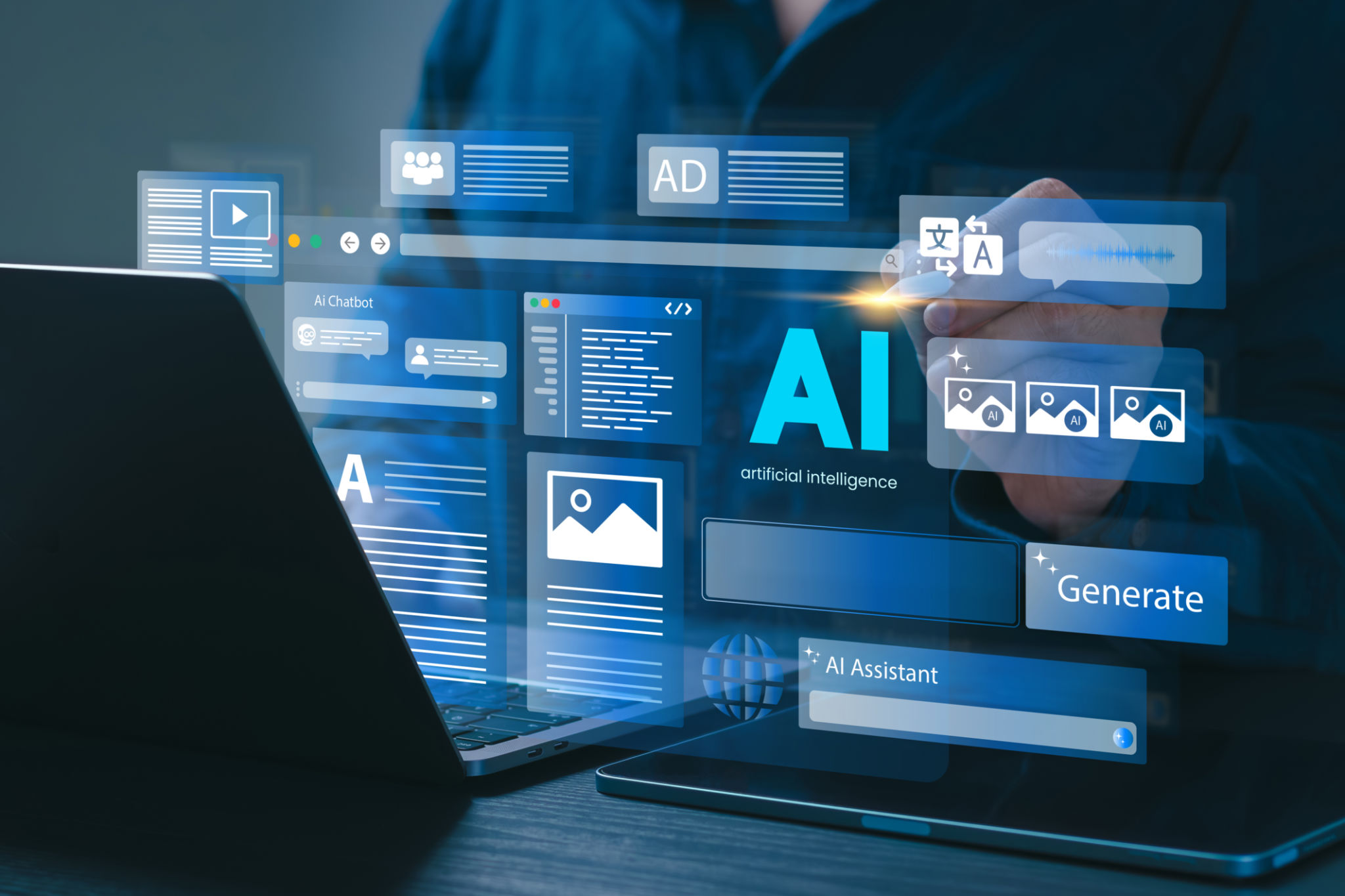The Future of AI in Branding: Trends and Innovations
The Rise of AI in Branding
Artificial Intelligence (AI) is revolutionizing the way brands connect with their audience. As technology continues to advance, AI has become an integral part of branding strategies, enabling businesses to personalize customer experiences, optimize marketing efforts, and enhance brand loyalty. The future of AI in branding is not just promising; it is inevitable.

Personalization at Scale
One of the most significant trends in AI for branding is the ability to deliver personalization at scale. AI algorithms analyze vast amounts of data to understand customer preferences and behaviors, allowing brands to tailor their messaging and product recommendations. This level of personalization was previously unattainable, but with AI, brands can now create customized experiences for millions of customers simultaneously.
Moreover, AI-driven chatbots and virtual assistants further enhance personalization by providing instant, tailored responses to customer inquiries. These technologies can learn from past interactions, ensuring that each customer engagement becomes more refined and effective over time.
AI-Powered Content Creation
AI is also transforming content creation for branding. Through advanced natural language processing (NLP) algorithms, AI tools can generate high-quality content that resonates with target audiences. From social media posts to blog articles and even video scripts, AI helps brands maintain a consistent voice and style while saving time and resources.

Furthermore, AI can analyze the performance of different content types across platforms, providing insights into what works best for specific audiences. This data-driven approach ensures that brands invest in content that delivers maximum impact.
Enhancing Customer Engagement
AI is set to redefine customer engagement by making interactions more intuitive and responsive. Through sentiment analysis and emotion recognition, AI tools can gauge customer reactions in real-time, allowing brands to adjust their strategies accordingly. This proactive approach helps in crafting messages that resonate emotionally with the audience.
Additionally, AI-driven personalization extends to dynamic advertising, where ads are tailored based on user behavior and preferences. This targeted approach increases the likelihood of conversion, as customers are more likely to engage with content that feels relevant and personalized.

Data-Driven Decision Making
The future of branding will rely heavily on data-driven decision-making powered by AI. Brands can leverage predictive analytics to forecast trends, understand market shifts, and identify new opportunities for growth. By analyzing historical data and current patterns, AI helps brands make informed decisions that align with their long-term goals.
Moreover, this data-driven approach enhances brand positioning by providing insights into competitors' strategies and market dynamics. As a result, brands can stay ahead of the competition by continuously refining their strategies.
The Role of Ethics in AI Branding
While the benefits of AI in branding are substantial, ethical considerations must not be overlooked. Brands need to ensure transparency and protect consumer privacy when utilizing AI technologies. Building trust is essential for long-term success, and ethical AI practices can help maintain brand integrity.

Moreover, as AI continues to evolve, brands should focus on inclusivity by ensuring that algorithms are free from biases. A commitment to ethical AI will not only protect consumers but also enhance brand reputation.
Conclusion
The future of AI in branding promises exciting opportunities for innovation and growth. From personalized customer experiences to data-driven strategies, AI is set to redefine how brands connect with their audiences. By embracing these trends responsibly and ethically, brands can unlock new potentials and stay ahead in an increasingly competitive market landscape.
